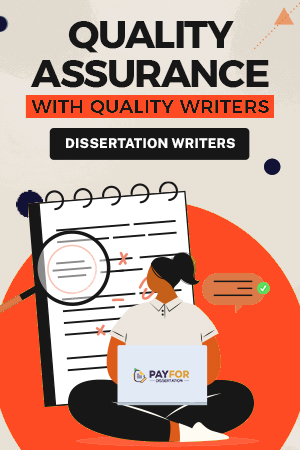
Managing Dissertation Deadlines: Time-Management Tips & Tools That Actually Work
Managing the Dissertation deadlines is not an easy task. A lot of different tasks are included in a dissertation, such as the collection of data, writing of the actual thesis, and revising your drafts again and again. Many students get confused about what to do first and how. Falling behind is easy without a clear plan. Many students struggle with timing and deciding what to do first, which makes the process harder.
In this blog, we’ll go over ways to handle dissertation deadlines better. There will be guidance about how to plan, organize, and keep your research on track. The blog also points out tools that make time management easier, so you can start writing a strong dissertation.
Setting Realistic Dissertation Goals
Setting goals you can actually reach makes the dissertation less stressful. Vague goals leave students confused and unsure what to do next. On the other hand, realistic goals help you to actually make progress in your research. So, you should keep clear goals if you want to complete your research on time.
Break the Dissertation Into Milestones
Break your big project into little steps. First, get your topic approved. Next, read books and articles. Then, collect your data. Last, fix and check your work. Doing it bit by bit makes it much easier.
Include Buffer Time for Delays
Add extra days around each milestone. Slowdowns, revisions, and feedback delays happen. Extra days keep your schedule flexible and deadlines realistic.
Set Clear, Achievable Targets
Set simple targets based on your day. On easy days, aim for more, like 2000 words. On busy days, do less, maybe 900. Adjust your goals to what you can really finish. This way, your targets stay doable and you don’t feel stressed.
Having milestones with flexibility helps work stay steady. You can track your pace, adjust when needed, and finish without extra stress.
Tools & Techniques for Time Management
Dissertation work becomes more manageable when students use appropriate tools and methods. Applying effective time management strategies keeps research and writing on track while lowering stress. When deadlines are tight, having structure becomes essential. So, the students need to use these effective tools and techniques, which will help them greatly in their research journey.
Use Project Management Tools
Platforms like Notion, Trello, or similar show your tasks clearly. You can track progress and avoid getting lost, which makes organizing projects much simpler.
Time Blocking & Scheduling
Set fixed periods for research, writing, and editing. This keeps your workflow steady and helps you stick to your plan.
Reference & Citation Management Tools: Keep your sources organized with Zotero, Mendeley, or EndNote. Choose any one tool to manage projects easily. This makes citations easier and avoids mistakes.
Pomodoro Techniques: Work for a set time, then take a short break, and repeat. It helps stay focused and prevents fatigue.
Track Your Progress: Check daily what you have completed. This prevents small delays from adding up and helps you meet your dissertation deadline.
Doing these steps regularly makes managing dissertation work simpler and keeps stress under control.
Overcoming Common Challenges
Dissertations are hard. Everyone hits something that slows them down. Deadlines slip. Ideas stop coming. Other stuff piles up, too. Knowing why things go wrong helps a little, but it does not stop the problems. You still have to plan and try to focus. And sometimes you just have to change your plan when things do not work.
Balancing Multiple Responsibilities
Research, classes, life, it all comes at once. You can feel like you are drowning. Even a rough plan helps. It does not need to be perfect. At least you know what to do first instead of running around all the time.
Procrastination & Motivation
Some days you do not want to do anything. Doing a little bit every day helps. Like a paragraph, or a few articles. Those small bits add up faster than trying to do everything at once and getting tired.
Dealing with Feedback
Include supervisor suggestions without derailing your timeline
Adjusting to Unexpected Issues
Maintain flexibility to handle sudden problems while still learning "how to meet dissertation deadlines".
If students face these challenges directly, they can keep a steady pace of work.
Maintaining Productivity & Focus
Even if students sit at their desks for hours, they may get little done. Completing tasks, rather than just waiting for time to pass, defines real productivity. Using focused work periods, short breaks, and basic planning helps keep energy up and ensures steady progress. Choosing clear priorities helps prevent burnout because it limits needless busywork and distraction.
Follow the tips given below to boost your productivity;
- Work in a short time frame, preferably for twenty-five to fifty minutes, then take short breaks.
- Prioritize tasks daily so you complete critical sections before minor, low-value items.
- Track milestones weekly to check progress and adjust plans before problems grow.
- Reduce social media usage to keep from distractions and dopamine spikes, and also avoid any unnecessary conversations that will divert your focus.
- Take a full 7 hours of sleep and rest properly so you are not tired for research work.
Keep routines simple so they actually stick across busy weeks and months. Regular checks, brief rests, and clear priorities make dissertation time management achievable. When you plan modest goals and protect focus, stress falls and work improves.
Using Supervisors & Feedback Effectively
Supervisor meetings are not just formalities; they guide students toward completing work on time. Using these sessions effectively helps students meet their "dissertation deadline" without unnecessary stress.
Preparing for each session, asking focused questions, and applying feedback step by step keep work organized. Seeing supervisors as accountability partners allows students to monitor progress and adjust plans when needed. Using meetings efficiently prevents wasted time and last-minute stress that can disrupt schedules.
- Send updates and an agenda before meetings to guide discussion and stay on track.
- Summarize tasks and confirm next steps after each session to keep work clear.
- Ask specific questions about challenges to avoid confusion and save time.
- Apply feedback step by step instead of redoing large sections all at once.
Regular, organized meetings make progress steady and reduce pressure. Following up and gradually incorporating feedback keeps the workflow smooth and manageable. Using your supervisor’s help effectively turns guidance into action, which keeps "dissertation time management" predictable and reduces stress. Students who treat meetings as checkpoints feel more confident and complete work on schedule.
Reviewing & Revising Effectively
Revising a dissertation carefully takes time and planning.Many students wait until the last moment, which creates stress and increases mistakes. Allocating specific periods for revision makes the process manageable while helping improve clarity. Structured review helps students feel more confident while keeping "dissertation time management" under control.
- Schedule revision blocks to check each chapter carefully.
- Separate writing and editing to maintain momentum without feeling exhausted.
- Work in short sessions to focus clearly on each section.
- Check references step by step to avoid mistakes near deadlines.
- Use proofreading tools like Grammarly, Hemingway, or built-in software to find mistakes.
- Combine manual review with software feedback to ensure smooth text.
- Revise sections step-by-step to reduce stress before deadlines.
- Review regularly to enhance confidence and meet academic standards.
- Plan revisions to make "dissertation time management" reliable and controlled.
- Follow structured editing to prevent frantic last-minute changes.
Conclusion
Completing a dissertation successfully depends on realistic goals, disciplined routines, and consistent "time management strategies". Clear milestones, focused work sessions, useful tools, and planned revision periods all help maintain steady progress. Using supervisors effectively and applying feedback carefully helps reduce last-minute stress. Meeting deadlines becomes easier when students plan thoroughly and maintain steady effort throughout the dissertation. When extra help is needed, "Do My Dissertation" services or consulting "MBA Dissertation Writers" can give added structure. Using the right tools and methods helps students handle their "dissertation deadline" confidently. Following these steps results in work that is organized, professional, and clearly shows steady effort.
FAQ’S
- How can you manage your dissertation deadlines?
Break it down. One chapter, one section at a time. Tick off tasks. Small wins make it less scary. Plan daily or weekly to stay on track. - What are the best time-management tools?
Pick what you’ll actually use. Notebook, sticky notes, Trello, Notion, phone reminders. Anything that keeps you moving. - How much time to work daily?
One or two focused hours work. Better than long sessions that burn you out. Keep it steady, make small progress. - What should be done if falling behind on a dissertation deadline?
Take a breath first. Panicking doesn’t help. Then look at what actually matters and do that. Some things can wait or be simpler than imagined. Talking to the supervisor helps too—they usually get it. Focus on finishing the big stuff first.
